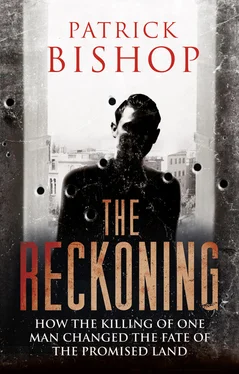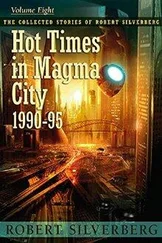First Clarke held a cartridge aloft to leave the crowd in no doubt of what was coming and give them time to do the sensible thing. The gesture had no effect. He loaded the round into the breech and thrust the bolt home. There was another pause, then Ring gave the order to take aim – but to wound, not to kill. ‘Slowly and deliberately’ Clarke drew a bead on the knees of the mob’s ringleader. Morton saw several stones and sticks hit the sergeant’s body ‘but he stood there, steady as a rock, resisting the irresistible instinct to flinch and duck’. Morton speculated later that perhaps a missile had spoiled Clarke’s aim or the victim had been stooping to pick up a stone when he was hit. Whatever the reason, an instant after the order to fire, the ringleader ‘lay, 20 yards away in front of the mob, stone dead, with a neat, round hole between the eyes’. The gunshot was followed by ‘a split second of petrified silence and then by the vague sounds of myriad feet running for dear life’. Moments later ‘there was not a soul to be seen, and that particular riot was over’.
In later life Morton recounted this incident – and many more like it – with relish. He liked the smell of danger. He welcomed the psychological challenge inherent in every confrontation between the forces of law and order and the mob. Inevitably the police were outnumbered and, though armed, would be overwhelmed if the rioters went on the rampage. By keeping their nerve, though, and reading the mood of the crowd, good policemen should be able to impose their will on far superior forces. Service in the Palestine Police would give him many opportunities for matching his will and skills against the enemies of British rule.
Like many in the force, he had arrived there almost by chance. Geoffrey Morton was the second son of William Jackson Morton, a lively character who seemed to embody the vigour, public-mindedness and optimism of early twentieth-century Britain. He was the manager of a busy branch of United Dairies, whose horse-drawn carts supplied London housewives with their daily milk and butter. The premises were in Urlwin Street, Lambeth, south London, next to the yellow-brick arches of a railway viaduct that carried commuters and shoppers back and forth between Blackfriars Station a mile or so away on the north bank of the River Thames and the south-east suburbs of London. Mr Morton lived a few dozen yards from his place of work with his wife, Sarah, two sons and daughter and a maid in a large nine-room terraced house. Their home was a middle-class outpost in a boisterously working-class area. It faced onto Camberwell Road, a wide, traffic-ridden street that during the day was lined with barrows selling fruit and vegetables manned by coarse, chatty costermongers. The many pubs, music halls and cinemas ensured that the area was equally lively at night.
At first sight, William Morton appeared a man of monumental respectability. He attended the local Anglican church on Sundays and was an enthusiastic Freemason. For thirty years he sat as a Conservative member on the London County Council, the powerful municipal body that ran many of the capital’s services, and, as a lay magistrate, dispensed justice to the drunks and delinquents of the borough. When the war came in 1914, he was forty-three, too old for the colours. He signed up instead as a special policeman, rising to command the auxiliaries in Lambeth and neighbouring Southwark. On his death in 1940, the local newspaper described him as ‘one of the best-known figures in South London’. 2
Behind the austere frontage of conformity, though, there gleamed a sense of fun. Edward VII was on the throne when Geoffrey was born and William Morton shared his sovereign’s enjoyment of card games and long, smoke-filled evenings. Like the monarch, he did not allow his wife’s strict sense of rectitude to interfere with his own enjoyable routines of meeting friends and visiting music halls.
Later in his own life Geoffrey Morton would give an exhaustive account of his professional career. He said very little about his boyhood and adolescence – as if it had no bearing on who he was or what he became. He left nothing on record concerning his brother, Arnold, four years his senior and a ‘black sheep’ who disappeared early from the family story. Much more is recorded about his younger sister, Marion, an ambitious, spirited girl who went on to become a teacher and an international standard netball player.
He started at his first proper school aged eight in January 1916. Every morning he set off from Camberwell Road on the two-mile journey to St Olave’s Grammar School, an impressive red-brick building, adorned with stone bas-reliefs of philosophers and poets, which sat on the south bank of the Thames next to Tower Bridge. ‘Stogs’, as it was known to generations of pupils, was founded in 1571 to provide free education to boys from modest homes. The curriculum in 1916 included scripture, Latin, Greek, French, German, Spanish, English grammar and literature, history, geography, arithmetic, algebra, geometry, trigonometry, chemistry, physics and botany. Great store was set on the values of the rugby field and the cricket pitch. Olavians filled the ranks of the professions. They were lawyers and bankers, accountants and teachers and doctors. They also served the empire as soldiers, sailors and administrators.
The list of distinguished Old Boys was long. It seemed unlikely that Geoffrey Morton would ever be among them. ‘He has been somewhat disappointing,’ recorded his form master, Mr Midgley, when Geoffrey had been at the school barely six months. ‘His work has shown ability but he is not consistently keen.’ 3
The school’s ethos was Victorian and Edwardian – forward looking, but intensely patriotic and nostalgic for an imagined chivalric past. Its solid brick walls could not shield it from the very modern war being fought across the Channel. Stogs men were floundering in the khaki mud of Picardy, and dying at the same rate as everyone else. In Geoffrey’s first year, the school magazine was full of death notices and unsparing accounts of the fighting. ‘In the Royal Army Medical Corps we see the most terrible side of war,’ wrote an Old Boy, Leslie Hocking. 4‘We see strong men pass us on their way up the trenches and a few hours later it is our duty to fetch some back as terribly disfigured and mangled corpses.’ Hocking was killed before his account appeared.
The conflict was on the doorstep. Britons could no longer rely on the surrounding seas to insulate them from violence when the country went to war. In the summer of 1915 Zeppelin airships started to drop bombs on London. In 1917, a raid demolished homes in Albany Road, a few hundred yards away from the Mortons’ house, killing ten and injuring twenty-four.
Occasionally, Geoffrey responded to his teachers’ urgings to try harder. The rallies were brief. Now and again he shone at French and German. His best subject was English grammar. In everything else he was towards the bottom of the class. He was particularly weak at scripture. William Morton’s conventional piety had failed to rub off on his son and Geoffrey’s indifference to God would persist all his life.
He left St Olave’s in December 1922, three months after his fifteenth birthday. His penultimate report carried a wounding parting shot from the headmaster, William Rushbrooke. ‘Failure in effort is culpable,’ he pronounced. ‘He can’t smile a path to success.’ 5Geoffrey’s smile was one of his most noticeable characteristics. In the school photographs he always wears a shy grin that makes him seem vulnerable and very young. This immaturity was also commented on by the teachers. ‘He is often childish and silly in his behaviour,’ his last class master, L.W. Myers, observed in the same report.
Geoffrey’s subsequent amnesia about his schooldays can be explained as a simple unwillingness to recall a period of prolonged failure. Qualifications came to mean a lot to him. In his police career he accumulated many yet he left St Olave’s with none. In a recording made at the end of his life he confessed to being ‘embarrassed’ by this. 6
Читать дальше












